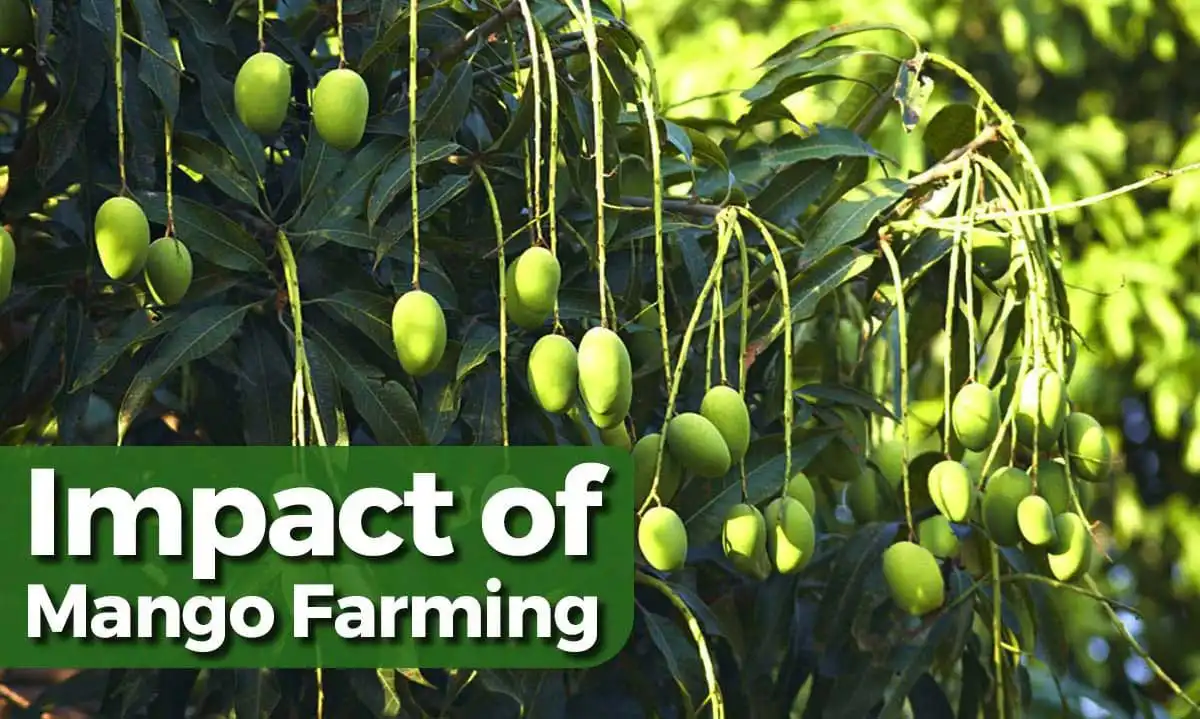Impact of Mango Farming: Nurturing Nature's Sweet Bountyg

Mango farming a centuries-old practice, has not only provided economic sustenance to countless farmers but has also enriched the environment and communities. As one of the most beloved and widely cultivated fruits globally, mangoes are cherished for their luscious taste and rich nutritional profile. This blog explores the multifaceted impact of mango farming, delving into its economic significance, environmental benefits, and the role it plays in fostering rural development.
Economic Significance of Mango Farms
Mango farming is a lucrative venture for farmers worldwide. The global demand for mangoes has surged, driving up both domestic and international markets. Mangoes are exported to various countries, bolstering the agricultural economy and contributing to foreign exchange earnings for mango-producing nations. In regions where mango cultivation is the primary occupation, such as parts of India, Mexico, Thailand, and the Philippines, mango farming supports millions of livelihoods. The fruit's popularity has resulted in a year-round market, and value-added products like dried mangoes, pickles, and mango-based beverages provide additional income streams for farmers.
Environmental Benefits of Mango Farming
Mango Farms play a pivotal role in ecological conservation and environmental stability. Mango trees are dense and large, making them excellent carbon sinks. Through photosynthesis, they absorb atmospheric carbon dioxide and release oxygen, contributing to mitigating the effects of climate change.
Mango orchards also help prevent soil erosion, as the extensive root systems anchor the soil, reducing the risk of landslides and preserving fertile land for cultivation. Moreover, these trees provide shade and reduce temperatures in the surrounding areas, creating microclimates that facilitate the growth of other plants and wildlife.
Biodiversity and Wildlife Habitat
Mango orchards act as biodiversity hotspots, supporting various plant and animal species. The diverse flora in and around the orchards attract pollinators like bees, butterflies, and other insects, aiding in cross-pollination and enhancing fruit yields. Birds and small mammals find shelter and nourishment in the orchards, contributing to the overall ecosystem balance.
Additionally, farmers often adopt sustainable farming practices that incorporate agroforestry, intercropping, and organic pest management techniques, further promoting biodiversity and providing sanctuary to wildlife.
Social Impact and Rural Development
Mango Farming plays a crucial role in rural development by generating employment opportunities and fostering community growth. It provides seasonal employment during planting, harvesting, and post-harvesting activities, creating income for a diverse labor force. Women play an essential role in mango farming, as they are involved in tasks like fruit picking and processing, empowering them economically and socially.
Furthermore, mango farming encourages entrepreneurship, with small-scale farmers establishing local fruit stalls, juice shops, and processing units. This strengthens local economies, encourages agritourism, and boosts the overall standard of living in rural communities.
Sustainable Practices in Mango Farming
As global awareness about sustainable agriculture increases, mango farmers are adopting eco-friendly practices. Integrated Pest Management (IPM) strategies, organic farming, and efficient water management techniques are gaining prominence to ensure the long-term viability of mango farms
Farmers are also investing in renewable energy sources like solar-powered irrigation pumps to reduce reliance on fossil fuels and minimize their carbon footprint. Sustainable practices not only preserve the environment but also enhance the quality of mangoes, making them more appealing to conscious consumers.
Conclusion
Mango farming goes beyond just producing a delectable tropical fruit. Its impact extends to economic prosperity, environmental conservation, and rural development. From uplifting farmer livelihoods to creating wildlife habitats, mango farms embody the essence of sustainable agriculture. As the world continues to value ethical and eco-friendly practices, mango farming stands as a glowing example of how agriculture can nourish both people and the planet. So, the next time you indulge in a juicy, ripe mango, remember the sweet impact it has on the world around us.
Latest Blog
JOIN OUR COMMUNITY !
Stay connected with Getfarms! Follow us on social media for the latest updates, exclusive offers, and a glimpse into the world of farmhouse living. Join our community today














